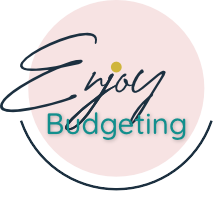Five steps to start an enjoyable debt free journey
Ever experienced that sinking feeling of dread as a working week approaches because you dislike the job you do, but feel trapped because you have bills to pay? Or maybe it is that sickening knot in your stomach when the ringing phone displays an unknown number after missing some credit payments. Or maybe still, it is the constant worry about money, living payday to payday and the feeling of helplessness at any emergency – from a single car tyre replacement to a broken boiler.
Yep! Been there.
Getting started on a debt free journey is a simple, yet hard step … an oxymoron! But you know what they say, a journey of a thousand miles begins with a step, maybe five in this case.
- Decide that enough is enough
- Learn to be content
- Know your ‘why’
- Educate yourself
- Budget.
Key Points
- Getting out of debt, like most challenges starts in the mind: you need a renewed and strong mindset.
- You can’t do the same things and expect different results: if you want to get out of debt, stop borrowing!
- Get a budget! It is the single most important element to manage your money better.
Step 1: Decide that enough is enough
This is a two in one step. First and foremost, it is a firm resolution you make to take action about your debt situation. It starts with the commitment to stop accruing debt and to work your way out of the repressive debt cycle.
Secondly, it is telling yourself that ‘enough is enough’ … literally. You have enough clothes, you have enough electronics, you have enough shoes, you have enough food, you even have enough money! I know… shocking right?
The truth is, for most of us, it wasn’t really a dire need or an absolute lack that got us deep into debt in the first place. It was the constant want for more and the mismanagement of what we had. That is why you probably make more money now than you did five years ago but have more debt now than you did then.
Step 2: Learn to be content
Now that you know you have enough, it is important for you to prepare your mind and attitude for the battle ahead. Contentment is one of the most powerful weapons to help you get out of debt and stay out of debt. Contentment is an important shield that will help protect your eyes from the strong, shiny bling bling rays of consumerism which is constantly being shone in our eyes.
Step 3: Know your ‘why’
Different people have different reasons why they want to be debt free. For some, it might be so that they can build wealth, gain financial independence and retire early (FIRE). Others might want to be debt free so they can access the freedom to live life mainly on their own terms. Others still, to heal themselves of the financial stress and anxiety being in debt can cause.
You need to be honest with yourself and identify your reason for your journey. It will be instrumental during the hard times of working more than one job, turning down some invitations and sacrificing certain comforts: when the going gets tough, your ‘why’ will help keep you going. Knowing your ‘why’ will also guide you in setting financial goals that are relevant to you and your family.
Step 4: Educate yourself
Education is a powerful tool in all aspects of life, and this is no different. Educate yourself about your own money habits and behaviours that have got you into debt (internal), as well as ways on how to get out of debt (external).
Internal Education
Educate yourself about your money habits by tracking your spending and your debt. This is really important. I used to think I was doing quite well with my £400 monthly food budget for a family of five until I actually tracked it. I was unpleasantly surprised by how much over we were going when I added up a couple of takeaways a month, mid-week top ups, school dinners and the occasional eating out.
This is how you can track your spending:
- Print out your bank statement(s) and credit card statement(s) covering the last three months to see where your money went.
- Document every purchase (yes, including that 50p for a packet of chewing gum) for at least a month to know where your money is going.
- Make a list of ALL your debts.
Download our free-to-you expense tracker!
External Education
Invest time into seeking knowledge; read books, blogs, watch videos and listen to podcasts that are useful and relevant for the journey you are on or want to start. Research into some of the ways others have used to help them get out of debt and make an informed decision on the practicality and intensity that works for you and your situation.
Step 5: Budget!
A budget is one of the most important commitments you need to make towards your debt free journey. A budget simply means ‘a plan for your money’. You may be familiar with the saying ‘if you fail to plan, you plan to fail’. In other words, if you fail to plan for your money, you plan to fail with money. That is how critical a budget is in this process. It can single-handedly determine the success or failure of your debt free journey.
After taking time to know your money habits (both good and bad) and tracking where your money has been going, you are now in a good position to plan and tell it exactly where you want it to go – every penny of it. A zero-based budget provides one of the best visibilities for your money and makes accountability a lot easier. Make a budget that is practical but as debt free intense as it can be.
After you create a budget, it does not end there; an equally important element of budgeting is sticking to the budget. If you plan out a great menu to eat healthier and never follow it, the menu will have no impact on you and will be rendered useless. The same is true for a budget. Take time to dictate where every penny of your money goes with a budget, but after that, let your budget dictate what you can and cannot say ‘yes’ to.
Finally, review your budget regularly and make the necessary adjustments when needed.
Not sure where to start with a budget? Download our free-to-you budget template to help you get started.



